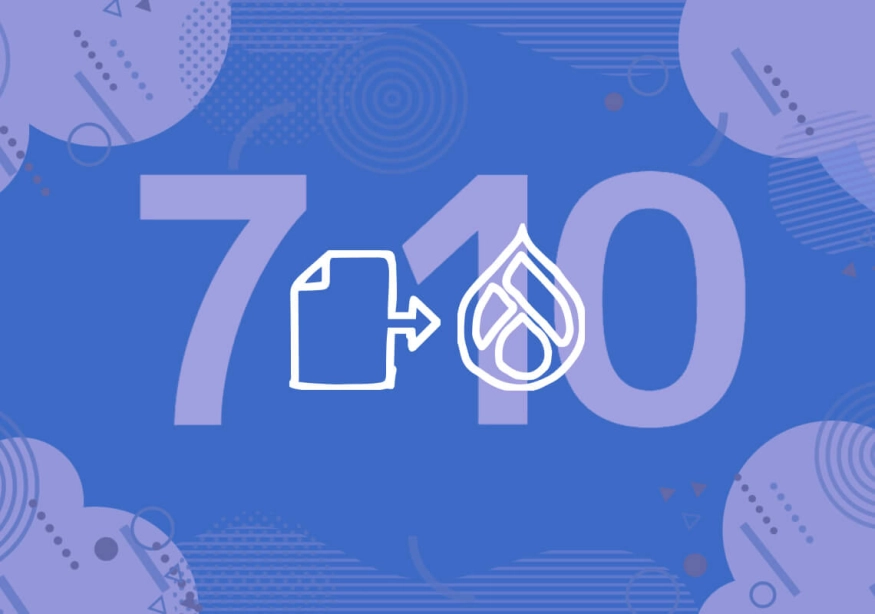The Ultimate Guide to Drupal Certification
Are you interested in becoming a certified Drupal expert? If so, you've come to the right place! In this ultimate guide, we'll walk you through everything you need to know about Drupal certification. Whether you're just starting your journey or looking to advance your current certification, we've got you covered. Let's dive in!
Understanding Drupal Certification
Let's start by understanding what Drupal certification actually means. Drupal certification is an official recognition that acknowledges your expertise in using Drupal, a powerful content management system (CMS). It demonstrates your ability to develop and maintain websites and web applications using Drupal's flexible and scalable framework.
What is Drupal Certification?
Drupal certification is a professional accreditation that confirms your proficiency in Drupal development. It not only enhances your credibility but also opens up new opportunities in the ever-growing field of web development. With a Drupal certification under your belt, you can confidently showcase your skills to employers, clients, and peers.
Importance of Drupal Certification
Now you might be wondering, why is Drupal certification important? A Drupal certification holds great value in the web development industry. It sets you apart from the competition and validates your expertise. By obtaining a Drupal certification, you gain a competitive edge and increase your chances of landing rewarding job opportunities and exciting projects.
Moreover, Drupal certification serves as a professional development tool. It allows you to stay up-to-date with the latest Drupal technologies and best practices, ensuring that your skills remain relevant in the ever-evolving digital landscape.
One of the key benefits of Drupal certification is the recognition it brings within the Drupal community. As a certified Drupal developer, you become part of a prestigious group of professionals who are recognized for their expertise and contributions to the Drupal ecosystem. This recognition can lead to networking opportunities, collaboration on innovative projects, and access to exclusive resources and events.
Furthermore, Drupal certification provides a structured learning path for individuals who are new to Drupal or want to expand their knowledge. The certification process involves comprehensive training and assessments that cover various aspects of Drupal development, including site building, theming, module development, and performance optimization. This structured approach ensures that certified developers have a well-rounded understanding of Drupal and can confidently tackle complex projects.
The Path to Drupal Certification
Ready to embark on your Drupal certification journey? Let's explore the path to becoming a certified Drupal expert.
Drupal certification is a valuable credential that showcases your expertise in Drupal development. It not only validates your skills but also opens up new career opportunities in the ever-growing field of web development. In this article, we will dive deeper into the prerequisites and steps involved in obtaining a Drupal certification.
Prerequisites for Drupal Certification
Before pursuing Drupal certification, it's important to have a solid foundation in web development. Familiarity with HTML, CSS, JavaScript, and PHP is highly recommended. These languages form the building blocks of web development and having a strong grasp of them will give you a head start in your Drupal journey.
Additionally, having hands-on experience with Drupal and its ecosystem will greatly benefit you during the certification process. Working on real-world Drupal projects, understanding the Drupal architecture, and exploring its vast array of modules and themes will enhance your understanding of the platform.
Steps to Obtain Drupal Certification
Obtaining a Drupal certification involves a systematic approach. Here's a step-by-step breakdown of the process:
Choose the Right Certification: Drupal offers different types of certifications, catering to diverse skill sets and roles. Whether you are a developer, themer, or site builder, there is a certification that aligns with your career goals and expertise. Take the time to research and choose the certification that best suits your aspirations.
Prepare for the Exam: Thoroughly study the exam requirements and recommended study materials. Familiarize yourself with Drupal's core concepts, modules, themes, and best practices. The Drupal community provides a wealth of resources, including documentation, tutorials, and forums, to help you prepare for the exam. Make use of these resources to strengthen your knowledge.
Take Practice Tests: Practice makes perfect! Attempt practice tests to assess your knowledge and identify areas that need improvement. There are several online platforms that offer Drupal practice exams, allowing you to simulate the actual exam environment. By taking these tests, you can gain confidence and refine your skills.
Schedule the Exam: Once you're confident in your skills, schedule the certification exam at a designated testing center or opt for online proctoring. Choose a date and time that suits your schedule and gives you ample time for revision. Remember to double-check the technical requirements for online proctoring to ensure a smooth exam experience.
Ace the Exam: On the big day, stay calm and focused. Remember to carefully read the questions and provide accurate answers. The Drupal certification exams are designed to test your practical knowledge and problem-solving abilities. Take your time, think critically, and apply your Drupal expertise to answer the questions effectively.
Celebrate and Share: Congratulations! Once you pass the exam, celebrate your accomplishment and proudly share your certification with your professional network. Update your LinkedIn profile, add the certification badge to your website, and let others know about your achievement. Your Drupal certification will not only boost your confidence but also enhance your credibility as a Drupal professional.
So, are you ready to take the next step in your Drupal journey? Start preparing for your Drupal certification today and unlock a world of opportunities in the exciting realm of Drupal development!
Different Types of Drupal Certifications
When it comes to Drupal, there is a wide range of certifications available to cater to different roles and skill sets. These certifications not only validate your expertise but also open up new opportunities in the ever-evolving world of web development. Let's take a closer look at two popular certifications that can help you enhance your Drupal skills:
Drupal Developer Certification
The Drupal Developer certification is specifically designed for individuals who specialize in developing custom Drupal modules, themes, and solutions. It goes beyond the basics and dives deep into the intricacies of Drupal development. By obtaining this certification, you demonstrate your ability to create complex functionalities and seamlessly integrate external systems with Drupal.
As a Drupal Developer, you will be equipped with the knowledge and skills to tackle complex challenges and deliver high-quality solutions. From building custom modules to optimizing performance, this certification covers all aspects of Drupal development. It also validates your understanding of best practices, security measures, and coding standards, ensuring that you can create robust and secure Drupal websites.
Drupal Site Builder Certification
If you are someone who enjoys building and configuring Drupal websites, then the Drupal Site Builder certification is the perfect choice for you. This certification showcases your expertise in using Drupal's site-building tools and configuring modules to meet specific requirements.
As a Drupal Site Builder, you will be responsible for creating and managing the structure, layout, and functionality of Drupal websites. This certification equips you with the skills to efficiently build and customize Drupal sites, without the need for extensive coding knowledge. From creating content types to configuring views and blocks, you will have a solid understanding of Drupal's powerful site-building capabilities.
By obtaining the Drupal Site Builder certification, you demonstrate your ability to create visually appealing and user-friendly websites that meet the unique needs of your clients or organization. This certification also validates your understanding of best practices in site-building, ensuring that you can deliver efficient and scalable Drupal solutions.
Whether you choose to become a Drupal Developer or a Drupal Site Builder, these certifications provide you with the necessary skills and knowledge to excel in the world of Drupal. They not only enhance your professional credibility but also open up a world of opportunities to work on exciting projects and collaborate with like-minded Drupal enthusiasts. So, why wait? Start your Drupal certification journey today and unlock your full potential in the world of web development!
Preparing for Drupal Certification Exam
Now that you have a clear understanding of Drupal certification, it's time to prepare for the exam. Here are some essential study materials and tips to help you succeed.
Essential Study Materials for Drupal Certification
To excel in the certification exam, make sure to utilize the following resources:
Official Drupal Documentation: The official Drupal documentation is a treasure trove of knowledge. Familiarize yourself with Drupal's core concepts, APIs, and development techniques.
Online Tutorials and Courses: Explore online tutorials and courses to gain practical insights and hands-on experience.
Community Forums and Events: Engage with the Drupal community through forums and events to learn from experienced professionals and stay updated with the latest trends.
Tips and Strategies for Passing the Exam
Passing the Drupal certification exam requires focus and preparation. Keep these tips in mind:
Create a Study Plan: Plan your study sessions by breaking down the topics into manageable chunks. Allocate time for theory, practical exercises, and practice tests.
Hands-On Practice: Apply your theoretical knowledge in real-world scenarios by building Drupal websites or contributing to open-source projects.
Review and Revise: Regularly revise the topics you've covered to reinforce your understanding.
Take Mock Exams: Attempt mock exams to simulate real exam conditions and identify areas that need improvement.
Maintaining and Advancing Your Drupal Certification
Congratulations on earning your Drupal certification! But it doesn't end here. To make the most out of your certification, consider the following:
Renewal and Recertification Process
Drupal certifications have an expiration date, usually two years from the date of completion. To keep your certification active and valid, you'll need to renew it by fulfilling certain requirements, such as earning continuing education credits or passing a recertification exam.
Advanced Drupal Certifications and Specializations
Once you've obtained your initial Drupal certification, you can further enhance your skills by pursuing advanced certifications and specializations. These certifications expand your knowledge in specific areas, enabling you to tackle complex Drupal projects and become a sought-after expert.
Now that you have all the information you need, it's time to kick-start your Drupal certification journey. Remember, becoming a certified Drupal expert is not only a testament to your skills but also a gateway to exciting career opportunities. So, let's get certified and unlock your full potential in the world of Drupal development!



